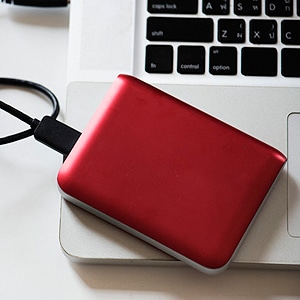It’s that time for end year vacations and holidays. This means you have a lot of time to travel, get to be with your friends and family, interact with new cultures and get away from a lot of things. But as you plan your vacation, don’t forget to also plan on how to deal with cybercriminals. This is their time to reap off unsuspecting individuals. Since we take care of our readers, we will outline some of the best cybersecurity practices to follow before, while you are on the go and after the vacation.
 Before you start your vacation:
Before you start your vacation:
- Back up and update your devices – If you are planning to carry most of your devices, start with backing up your data. You will never know when a disaster hits or you might misplace them during your vacation. Also, ensure you have set the Find My Device feature on your devices to avoid inconveniences. After a backup, you should consider updating your devices, that’s, the whole system, apps and ensure the antivirus has the latest security definitions
- Secure your accounts – Ensure all your accounts are protected with strong, unique passwords, and two-factor authentication is enabled.
 While on vacation:
While on vacation:
- Subscribe to a VPN (IPBurger VPN) – IPBurger VPN will ensure that you are always protected against all sorts of online threats concerning security and privacy. No prying eyes will snoop on your data because IPBurger VPN uses military-grade AES-256 encryption to ensure it reaches its destination safely. Also, IPBurger will help you gain access and unblock content that you might not be able to access due to geo-restrictions. Using various server locations, IPBurger can mask your real IP address and help you bypass the restrictions.
- Avoid Public WIFI – While on vacations, you will spot several premises with a free Wi-Fi banner. To save on costs, you are likely to connect to it. This might expose you to a world of cyber criminals waiting to steal your files, identity and even drop some malware. If at all you can’t avoid public WIFI, use them with IPBurger VPN. Also, ensure all file-sharing services are turned off.
- Check what you are sharing – You might want to let the whole world know how well your vacation is going. This is usually accompanied by tons of selfies posted on various social media sites. Be careful on what details you might expose to the world; selfies are a security risk. Remember, even cybercriminals are watching.
- Avoid public computers – Similar to public Wi-Fi, public computers also have a myriad of security and privacy risks awaiting to happen. If you have to, do not use them to access confidential and sensitive information, use incognito mode and lastly don’t use flash drives.
 After vacation:
After vacation:
- Scan your devices – When you are back home, you might want to restore some of the data you had backed up earlier. But before you do that, you should scan your devices or even better, clean them. You might not know what kind of malware you might have picked up during your vacation.
- Continue using a VPN – You might have found some favorite web pages or content while on your vacation. Back home, it may be no surprise that they are blocked. To gain access to them, simply use IPBurger VPN and select the location of your vacation. You will then be able to access your content.
 Before you start your vacation:
Before you start your vacation: While on vacation:
While on vacation: After vacation:
After vacation:

